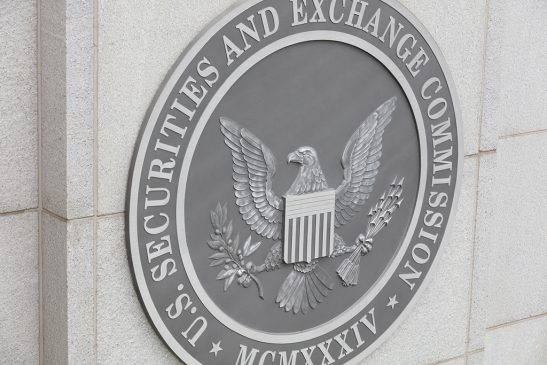The never-ending uncertainty on the arrival of Bitcoin ETF to the market continues further! On Saturday, March 30, the U.S. Securities and Exchange Commission (SEC) announced the delay of Bitcoin ETF proposal filed by Bitwise and VanEck.
Last month on February 15, Bitwise filed its application with NYSE Arca. Also, Bitwise was hopeful that the SEC will decide on their ETF proposal within 45 days of the filing i.e. April 1. However, the SEC has now decided to take the privilege of extending the period, with a maximum permissible extension up to 90 days.
The SEC filing also notes that May 16 is the ultimate date for it to make the decision. The filing reads that by this date, “the Commission shall either approve or disapprove, or institute proceedings to determine whether to disapprove, the proposed rule change”.
Furthermore, in addition to Bitwise, the SEC is also reviewing an application by VanEck and SolidX, filed in partnership with the CBOE BZX Exchange. After creating a lot of buzzes last year, CBOE announced the temporary withdrawal of its 2018 Bitcoin ETF application. The announcement came in January 2019 following the extended shutdown of the U.S. government.
However, soon within a week’s time of its withdrawal, CBOE re-filed its VanEck/SolidX ETF supposedly in compliance to the SEC rules. The first 45-day window of SEC’s decision on the newly filed VanEck ETF proposal expires on May 21, 2019. Just like Bitwise, it is highly likely that the SEC will extend it to a further 90-day window.
While some remain hopeful for the SEC approving a Bitcoin ETF by the year-end, others are quite skeptical. A leaked interview this February suggested that the SEC Commissioner Robert J. Jackson is hopeful on the approval of Bitcoin ETF.
Lashing Out At the U.S. SEC
David Siegel, founder of crypto projects Pillar and 20|30, has lashed out heavily at the U.S. SEC. During a recent presentation, Siegel was speaking on the ongoing crypto winter has proved very detrimental for the growth of the crypto market. Speaking on the prolonged bear market, Siegel said:
“This Crypto Winter is the death of an era. For about 18 months between January 2017 and August 2018, open-source projects—smart people with no other fundraising opportunities—could build infrastructure for a new century of progress, and now that window is closed, probably forever”.
Further, Siegel blames the U.S. SEC for ‘starving’ innovation. He said:
“The SEC is largely responsible for what has happened, and should be doing more to foster innovation, not starve it. They created a self-fulfilling prophecy: by expressing their concerns that this would be bad for investors, they made it very bad for investors.
Unless the US can enact new legislation to promote blockchain and decentralization, the US will be left behind. Other countries are more than happy to accept digital nomads and refugees who want to bring the world into the 21st century.”
Looking back into history, the U.S. SEC hasn’t been affected on any such sort of intimidation while remaining firm on its decision. It remains to be seen if the securities regulator takes any additional steps this year while accommodating crypto businesses in the mainstream.




